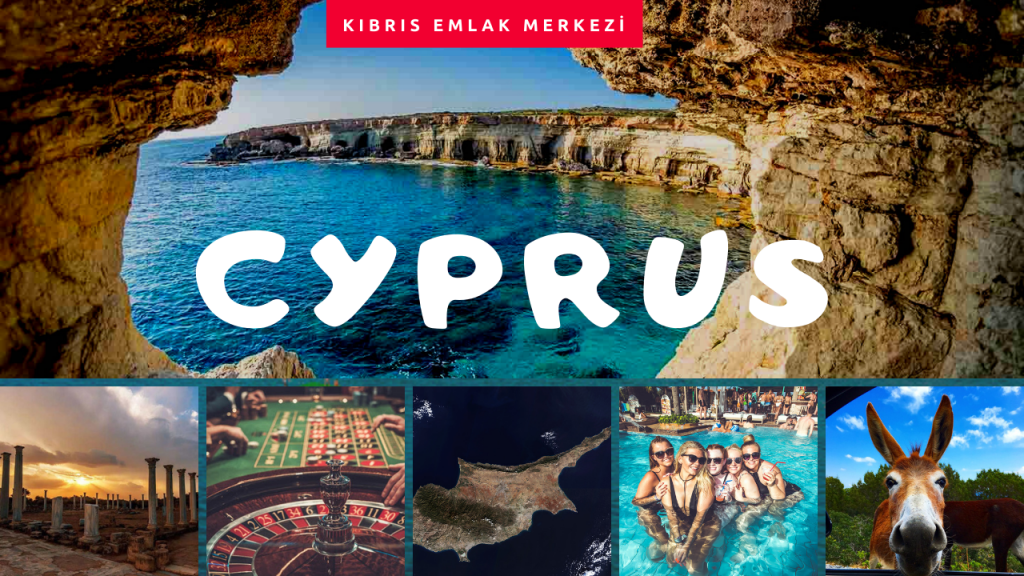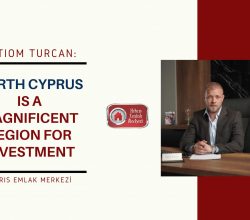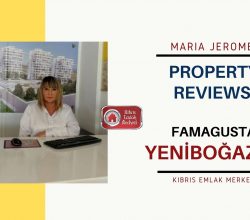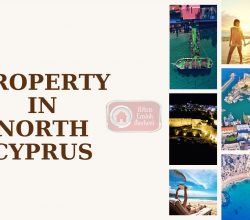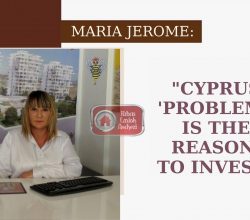If you want to buy real estate in North Cyprus, you should definitely read the buyer’s guide. Details are in our special news we prepared for you.
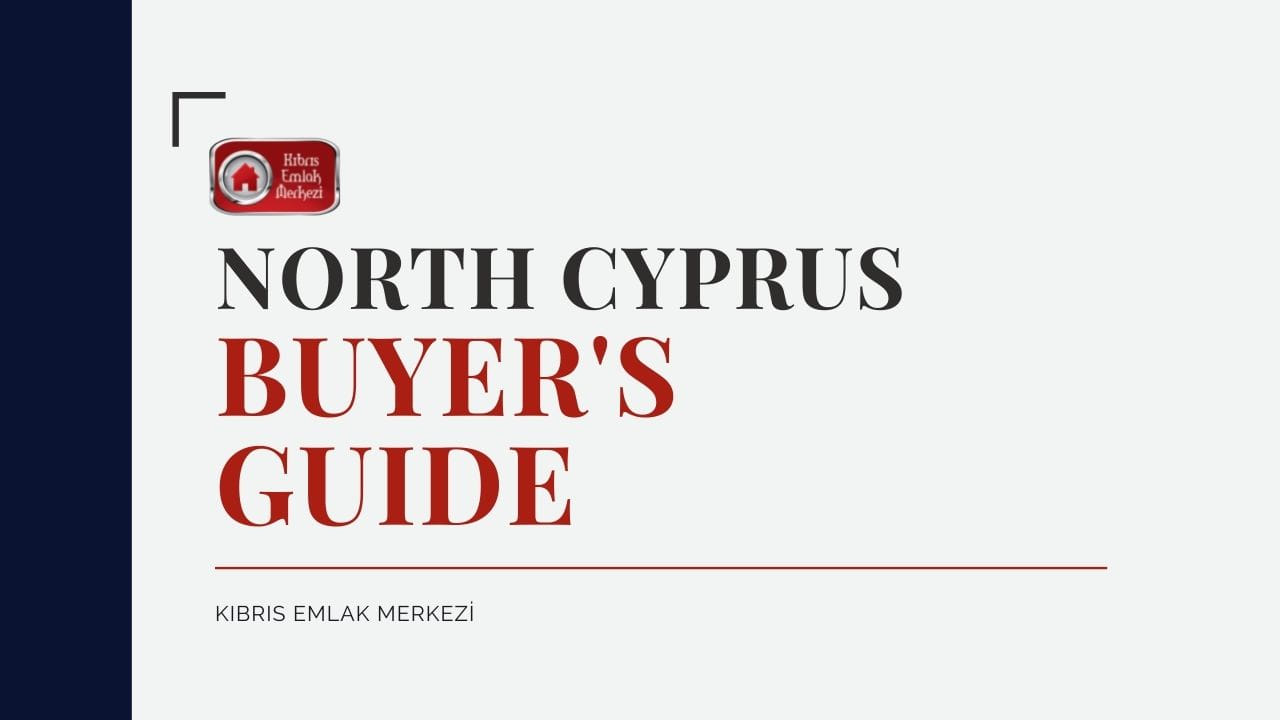
There are many reasons to buy a property in North Cyprus like the beautiful unspoilt nature, glorious sandy beaches, spectacularly rich historical heritage and certainly most affordable properties in the Mediterranean for any kind of investor.
Your motivation to buy will be the most important factor on deciding about the right property for your needs.
Have you been on holiday here and fancy to have a holiday home? Do you think about settling down in North Cyprus and spend the rest of your life here? Would you like to invest for capital gain and return of investment in 7-10 years by renting out your property?
The answers to those questions will lead you to different locations and price tags, so you should be aware of your motivation in order to avoid disappointments.
A brief reality check goes a long way.
Do you want to live in an apartment complex with lots of ex-pats? There are big residential complexes in rural areas mostly bought by European nationals. Large buildings close to or in the city center of Famagusta and Kyrenia are popular for Turkish nationals and students for instance…
Living in a rural area is more affordable compared to living in downtown and allows for mixing with locals, but are you prepared to drive for miles to reach hospitals, banks, shops, cultural events? Maybe areas like Çatalköy, Alsancak, Lapta, Esentepe are more convenient for you in this respect?
How will your holiday home be taken care of when you are not there? Or would you feel comfortable when most of the neighbors leave after their holidays, close down their properties until next season and you are there almost by yourself?
Depending whether you are more interested in capital gain or return of investment by short term or long term lettings your answer will be different again.
Therefore, it is crucial to determine the location and type of property before deciding on where to spend your money.
BUDGET
Once you have decided which area and type of property suits you best it’s time to determine your budget. Our advice would be to stick to your budget and calculate approximately 10% on top of it for other costs like VAT, stamp duty and transfer costs. In addition, there will be solicitor’s costs varying from £ 1250-2000.
TITLE DEEDS
(Leasehold title deeds are rare and exceptional and therefore excluded from this article)
When looking for a property in the TRNC you most certainly come across terms like Turkish title deed, Pre 74 title deed, exchange title deed and grant title deeds.
Different types /names of title deeds create confusion so one thing is important to know. From a juridical point of view there is only one title deed and that is a Turkish Republic of Northern Cyprus (TRNC) freehold title deed.
The TRNC government underwrites all issued title deeds therefore the origin of the title deed before 1974 is irrelevant for ownership. Once you have paid for the property and have obtained your permission to buy by the Council of Ministers you are the rightful legal owner of the property.
- Pre 1974 Turkish and Foreign Freehold Title are titles for land or property owned by a Turkish Cypriot or foreign national before 1974. Many people consider this type of title deed as the gold standard, therefore these properties are sold at a premium price tag.
- Esdeger (Exchange) title deeds are issued by the TRNC government for land or property given to a Turkish Cypriot in exchange for land and property they owned in the South before 1974. Following a value assessment for the property owned in the South, the government allocated a property of similar value in the North in exchange of waiving rights of their property in the South. A huge percentage of properties in the North are of this type.
- TRNC Grant Title Deeds, often called TMD (Turkish Mainland Deeds) in the English speaking real estate jargon, were issued by the TRNC government to Turkish Cypriots in recognition for their military or government services or settlers brought from Turkey to enhance economic growth in certain parts of North Cyprus. These titles provide full ownership rights over their property like any others and are reliable.
Putting misinformation and misconceptions of the title deed issue aside, as this is a politically driven subject to be analyzed in a separate article, one thing is to be remembered; all title deeds issued after the division in 1974 are TRNC title deeds, are safe and cannot be claimed by anyone else. Claims of previous Greek Cypriot owners are handled by the Immovable Property Commission, set up in accordance with the rulings of the European Court of Human Rights. The body founded in 2006 is acknowledged and endorsed since 2010 by the European Court of Human Rights, based on a bi-zonal, bi-communal future reunification agreement to establish an effective solution for claims related to abandoned properties. It is highly unlikely that individual current landlords will be asked for compensation in case of a reunification.
The TRNC is a safe place to buy property especially since recent legal regulations are protecting the buyer and insist on the registration of the sales contract within 21 days of agreement.
LEGAL REPRESENTATION
When you have found your ideal property and are about to buy it, it’s important to appoint a legal representative in the TRNC guiding you through the transaction and ensuring that all your interests are fully covered. It is a common misconception that your solicitor in your home country will be able to handle buying procedures.
During the initial meeting a solicitor will explain procedures you’ll need to follow and will ask for a power of attorney to be able to represent you and sign documents on behalf of you. The solicitor will check on the company you intend to buy from, will organize permits required to buy a property as a non-citizen, will deal with required paperwork from the government, will confirm the status of title deed and draw up a contract.
Once checks are completed at the Land Registry, the sales contract according to your requirements is drawn up and signed. The sales contract has to be registered at the Land Registry office within 21 days. 0.5% of the purchase price will be paid there as stamp duty, providing you with the security that your property cannot be sold or transferred to a third party and remains free from subsequent encumbrance.
Completion will take place according to the terms agreed on your Contract of Sale if your property is a resale or ready to move in property. When you take possession of the property, keys are collected and all utility and other bills are checked if they are up to date. Your solicitor will ensure that sale proceeds are only released when all completion processes have been finalized.
In the case of buying an off-plan property from a reliable builder don’t forget to engage an independent lawyer and definitely not the builder’s. Your interests should be protected at all times without the risk of conflict of interest. Stage payments to the builder will be made by you through your solicitor in accordance with the terms of the contract. Your solicitor will guide you through the final process upon completion of property.
All non-TRNC citizens have to obtain a permission to transfer the title deed in their name from the Council of Ministers. Before granting the permission, searches from the land registry, the military and the immigration authorities will be taken by the relevant authorities. Provided that these are all in order your permission will be granted by the Council of Ministers. Your solicitor will make necessary applications and follow up the process on your behalf. This procedure may take several months. However, you will be able to move into the property, lease the property or even sell the property before permission of transferring the title deed is granted by the Council of Ministers based on our registered contract of sales at the Land Registry.
Once your property buying permission has been granted, you will be notified by your solicitor. Land registry forms will be filed, taxes due on transfer of title will be paid and the title deeds will be registered in your name.
Please bear in mind that non-TRNC citizens are only allowed to have the title deed of 1 property in their name. As a couple you may have one in each person’s name but should you envisage to buy more you should consult with your solicitor about options of trustee agreements.
TAXES INVOLVED IN PROPERTY TRANSACTION
The Transfer Fee is usually paid by the buyer at the Land Registry Offices. The Transfer Fee is 6% of the price of the property with a once in a lifetime option to reduce it to 3%. Should you decide to use this option on the purchase, you will only pay 3%, but be careful because once this option right has been used all future purchases will be taxed with 6%. Local municipality taxes are 1% of the Transfer Fee amount.
Capital Gains Tax is usually paid by the vendor to the TRNC Tax Office.
The amount depends on whether the vendor is a professional or a private individual. Professional vendors pay 4% and private individuals pay 2.8% of the price of the property.
The VAT is paid by the purchaser to the seller on the date when possession of the property is delivered to the purchaser. VAT is applicable only in cases where the seller is a professional. VAT payments generally are done for new-built properties. Resale properties mostly will have already paid VAT in the past when the first owner took possession of the property from the professional vendor.
Stamp Duty is paid by the purchaser to the Tax Office during the registration of the Contract of Sale at the Land Registry Office as mentioned above.
ADDITIONAL COSTS
- Utilities Connection Fees in North Cyprus
Water and electricity supply connection will cost around £ 300
- Local Taxes
The annual local municipality property tax is 1TL for 1sq.m. of your property’s area.
- Transformer Contribution
Usually developers are asking for charges of around £ 1500 for new builds as a contribution for the building of a transformer.
On a final note:
The TRNC has its own legal system and application. Therefore, it is important that property buyers in the TRNC make a will in the TRNC to cover their estate just in case. Wills prepared abroad may lead to a considerably complicated probate procedure to be implemented and may also result in terms you did not intend due to different laws.
Furthermore, in case of dying without leaving a will, laws of TRNC will be automatically applied where the rule is that the spouse will inherit 1/6th of the estate whereas surviving children or relatives will have a share of 5/6 , which is significantly different to inheritance regulations outside of the TRNC. A will made in the TRNC is uncomplicated and ensures that your assets will be passed to people of your choice.
Beril ÖZTUNALI
Kıbrıs Emlak Merkezi Country Manager
Subscribe to our mailing list to access the latest news



